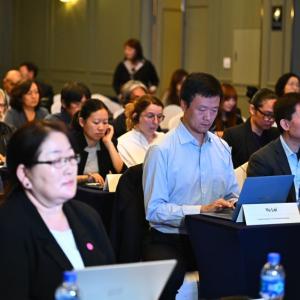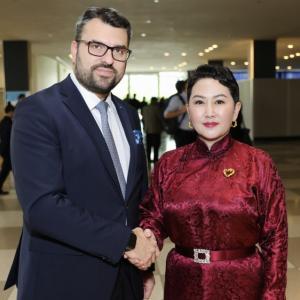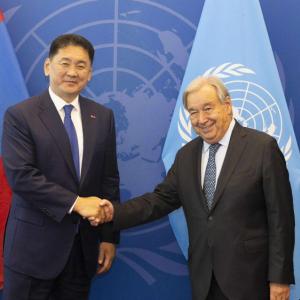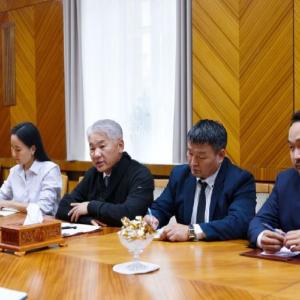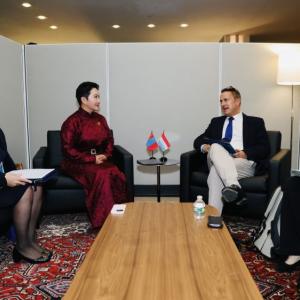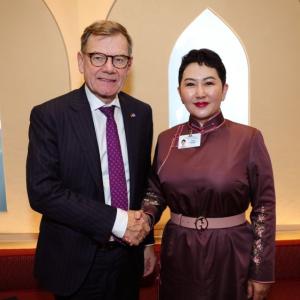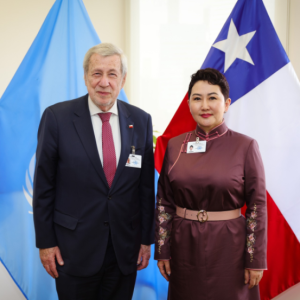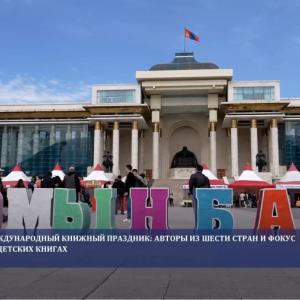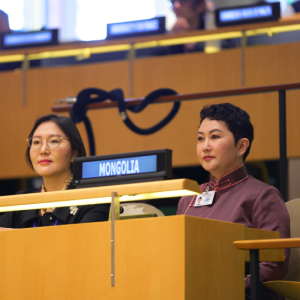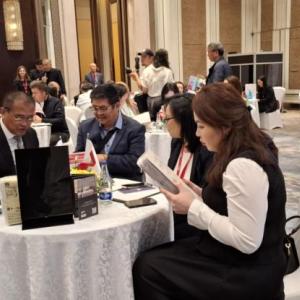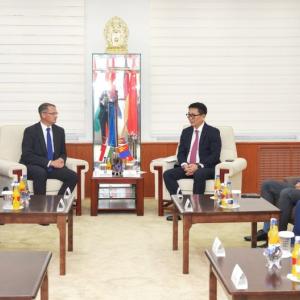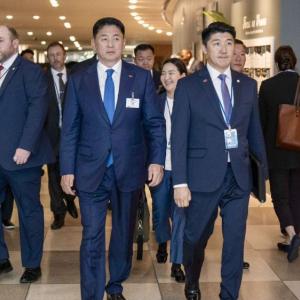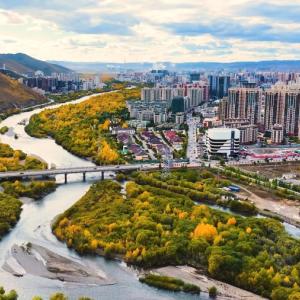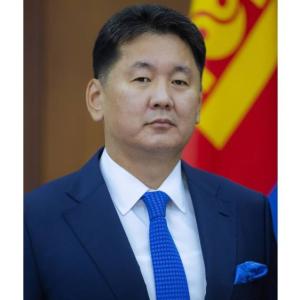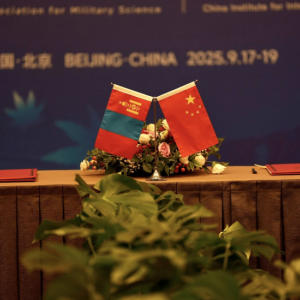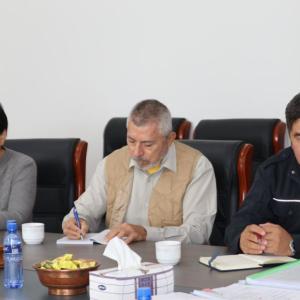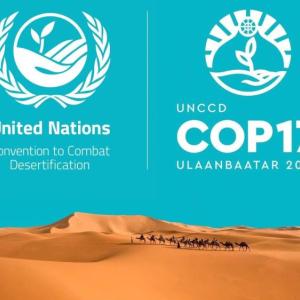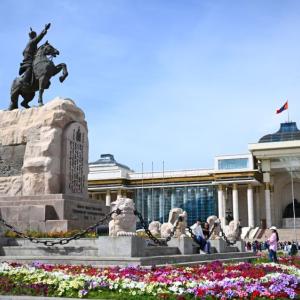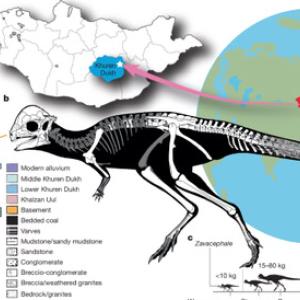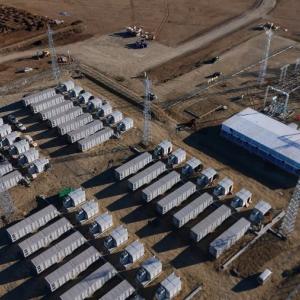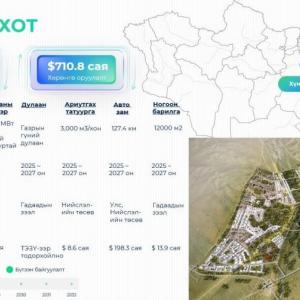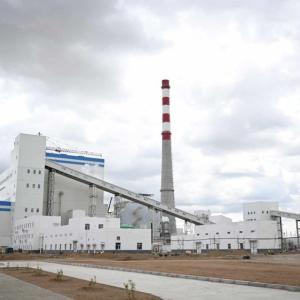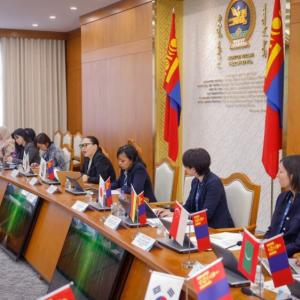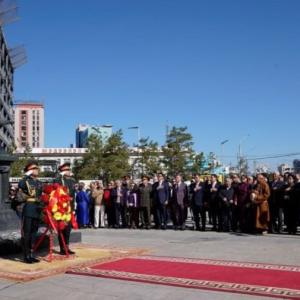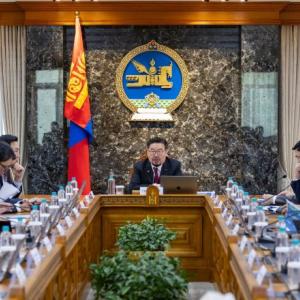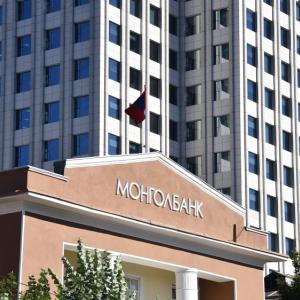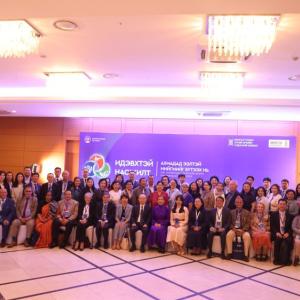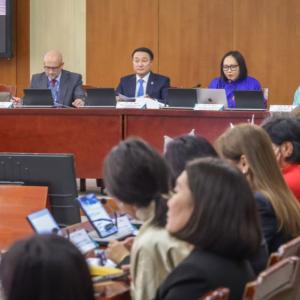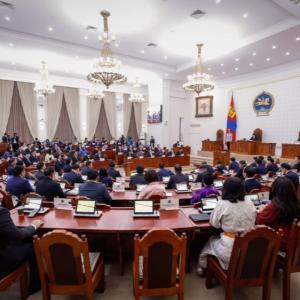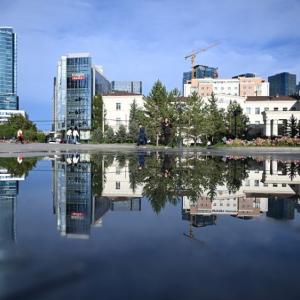Mongolian Government Announces Five-Year Reform Plan and Economic Policy Initiatives
Politics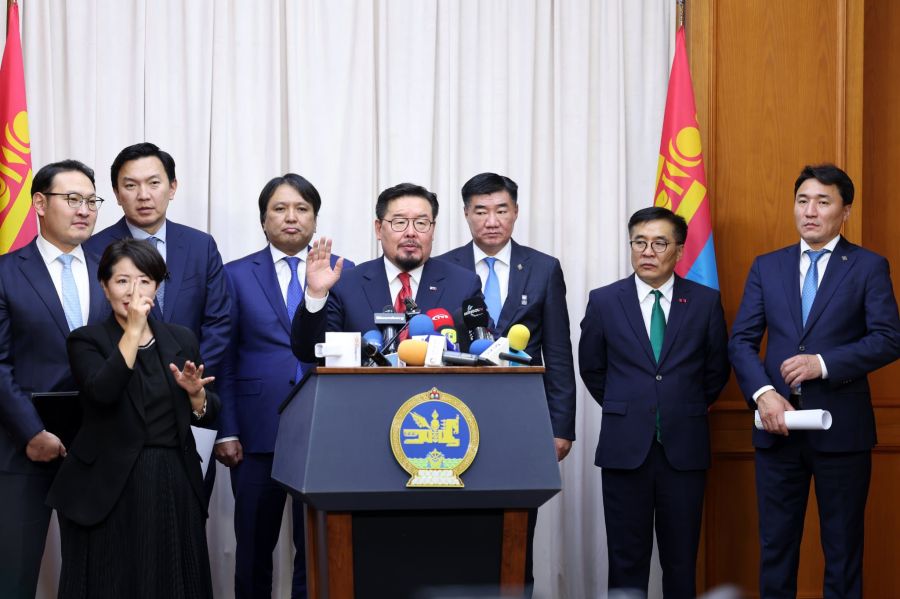
Ulaanbaatar, September 24, 2025 /MONTSAME/. At its Cabinet meeting on September 24, 2025, the Government of Mongolia reviewed the draft of the Five-Year Development Guidelines of Mongolia for 2026-2030. Following the Cabinet session, Prime Minister Zandanshatar Gombojav and Cabinet members held a press briefing to share updates on the Government's recent actions and future plans.
Prime Minister Zandanshatar
announced that under the "New Confidence - Bold Reform" program, the Government
plans to implement reforms across ten key areas, including governance, the
economy, human development, taxation, green growth, energy, and rural-urban
development. The Premier also reflected on the Government’s progress during its
first 100 days in office and outlined long-term policy objectives.
In his remarks, the Prime
Minister emphasized the difficult geopolitical and economic environment in
which the new Cabinet took office. He noted that coal prices—Mongolia’s primary
export—had fallen by half, creating a real risk of a MNT 3.3 trillion shortfall
in budget revenue. The exchange rate was approaching MNT 4,000 per USD, and
inflation was on track to reach 15 percent. Against this backdrop, economic
growth had declined to 2.4 percent by the end of the first quarter.
To address the crisis, the Government
submitted a revised austerity budget to the State Great Khural within one week
of taking office. According to Zandanshatar, this move helped avert a looming
crisis and stimulate growth. As a result, the country’s foreign currency
reserves grew to USD 5.7 billion, economic growth rose to 5.6 percent, and
Mongolia’s international credit rating remained stable. The country’s debt risk
ranking also improved, moving from seventh to sixth place. "Through the
efficient implementation of the revised budget, the Government saved MNT 2.2
trillion in inefficient spending."
The Prime Minister also highlighted improvements in the management of state-owned enterprises. A special operational regime was imposed on “Erdenes Tavan Tolgoi” JSC, which led to a threefold increase in efficiency and a 1.6-fold rise in coal exports over the two months. Previously stagnant coal trading resumed and saw growth of up to 17 percent. As exports increased, the balance of payments turned positive, and the value of the national currency stabilized.
PM Zandanshatar stated that
the Government had also begun a broad reform of the civil service. The number
of department heads and senior agency officials was reduced significantly,
easing bureaucratic overlap and inefficiencies. The Government has initiated
steps to strengthen the National Wealth Fund. It has been decided that citizens
will receive the benefits of Mongolia’s strategic mineral deposits. A new
copper deposit has also been discovered.
The Prime Minister noted that
a new agency to combat narcotics has been established, and anti-corruption
efforts are now producing tangible outcomes.
The Government is also digitizing its public finance
systems, and VAT receipts will soon be electronically recorded under the
“Digital First” initiative.
The Prime Minister added that
the Cabinet had approved the country’s Artificial Intelligence Strategy during
today’s meeting. A virtual tax zone has been created, and a new digital
governance system has been introduced. As part of ongoing fiscal reforms, VAT
refunds will be increased to five percent, meaning a family of four could
receive up to MNT 2 million annually. The education budget has been doubled,
and health sector investment has increased more than fivefold. The Government
is also introducing a participatory budgeting model that includes public input
during the planning phase and citizen evaluations after implementation.
Looking ahead, Prime Minister
Zandanshatar confirmed that a full-scale tax reform will be launched by
broadening the tax base.

 Ulaanbaatar
Ulaanbaatar
